As the war drags on (some are beginning to call this Israel’s Second War of Attrition), sentiments about the north range from deep worry to anguish. A bit more on that, first.
Then, memory. In this year of mourning and constant funerals (I know several people who went to three different funerals yesterday), Israelis are focusing on memory—through both informal, popular means, as well as more formal projects, like books.
And once on the subject of books, a conversation with Matthew Miller, whose Maggid Press released perhaps the most-read of these books of memory, One Day in October. As I was reading the book, which I had to order because it kept selling out at bookstores when it first appeared, I was reminded of what an extraordinary story is the story of the man behind the press that published it.
Matthew Miller, American by birth and a businessman who spent many years in Europe, made aliyah and in a matter of just a few years had created or revived several of the Jewish world’s most influential presses. Matthew’s story is one of those “only in Israel” stories, so with his press’s new book, One Day in October, just out, we reached out to hear his unique story.
We’re sharing it with everyone … the link is above.
Israelis woke up this morning to, among other stories in the press (image below is Google Translated), this article on N12 about a bereaved mother who is terrified that her son’s grave (“it’s all I have left”) will be burned. So, she says, she’ll stay with it, no matter what side of the border it ends up being on.
Not many months ago, readers might have wrinkled their noses at a headline like that and asked themselves, “what’s wrong with her?” When did Israel ever lose territory in a war? In what world does Israel no longer control the north? Hasn’t every Israeli war resulted in increasing our territory?
Well, no, not really. True, even in the First Lebanon War and the Second Lebanon War, which did not go very well and in which Israel did not acquire (for the long run) additional territory, it at least did not lose territory. But what about 1973?
The story we tell about 1973 is that while Israel was taken entirely by surprise an suffered grievous losses in the first week of the war, by the time the 18-day-long war was over, we’d gotten back to the “starting lines.” No territory lost there.
That’s true, as far as it goes. But Anwar Sadat had never planned to destroy Israel in the Yom Kippur War. He knew that was not possible, just as Sinwar knew that his terrorists wouldn’t take over Israel. What Sadat wanted was the Sinai, which in his mind, was key to restoring Egypt’s pride after Nasser’s debacle of 1967. What he needed was to hit Israel hard enough that Israelis would step away from Golda Meir’s intransigence and unwillingness to engage in any negotiation—and that’s exactly what he did. While Israel “won” the war in 1973, by 1977 Menachem Begin had invited Sadat to the Knesset and by 1979, Egypt had the Sinai back. So, who won?
That’s but one example of many. The sub-stories of our wars are always more complex than we often imagine.
Which brings us back to this morning’s headline about the woman who says that she’ll stay with her son’s grave, even if it means living on the other side of the border. What’s going on?
Well, here’s a very short excerpt from this weekend’s column by Nadav Eyal, one of Israel’s most respected and internationally published journalists, in Yediot Ahronot.
The huge black headline reads: THE IRANIANS ARE AT THE GATE.
The smaller black headline reads:
Our eye gazes towards Teheran [DG - a play on HaTikvah, which speaks of our eye gazing towards Zion]. The possibility of a military operation in the north is growing, but with it, worry about Iran’s getting involved to support Hezbollah. ⚫️ Black Hole: the IDF is worried about wallowing in Gaza that will drain forces from other fronts. ⚫️ Now, it’s everyone: in the security echelons they are saying that we’re close to a military triumph over Hamas, and that there’s therefore no reason to fear declaring an end to the war in order to get the hostages back.
Eyal is unquestionably right about what the army is saying. There’s now a chorus of higher-ups saying that it’s OK to end the war and get the hostages back, because we’ve essentially defeated Hamas. But Israelis are wondering. Is the brass saying that because we’ve essentially defeated Hamas, or because they know that we can’t, and therefore, if the war is going to drag on for years, we might as well get the hostages back while we still can?
That depends on who you ask.
In his column, Eyal lays out three scenarios for what might happen in the north. Here’s the third:
The third possibility, which is the one that seems most likely, at least as of the writing of this column: there is not going to be any [cease-fire] agreement in the south [Gaza], but the war there will essentially end. The IDF will move troops and resources to the north, and will seek a focused operation that would do serious damage to Hezbollah and will lead—hopefully—to distancing it from our border.
That is a huge challenge, which boils down to the following question: will the agreement we achieve after an operation like that be substantially better than a more minor agreement that we might get now?
It’s important to make clear what’s at stake: in an operation like this, Hezbollah is expected to fire thousands of powerful and reasonably accurate missiles at all parts of northern Israel, including Haifa. Even when the two sides, Israel and Nasrallah, reign themselves in, Israel is likely to have suffered destruction of the sort it has never experienced. Western intelligence sources believe that Iran will be inclined to join the fighting and to attack Israel in a broad-scale war with Hezbollah.
“If the assumption until now had been that Hezbollah would join in if we attacked Iran, the updated assumption is that Iran will join in if Israel hits Hezbollah hard.” There are also questions of materiel: statements that the US is continuing to hold up deliveries of weapons to Israel, even now. I assume that those weapons are the bombs that we need for war in Lebanon.
As mentioned above, even as the war drags on and a possibly larger war looms, Israelis are—in their characteristic fashion—devising creative ways of memorializing the almost two thousand people who have been killed since October 7.
Months ago, I began to see stickers on cars, and doors, and walls outside, each with the picture of a victim and a few choice words, usually by her or him, or a quote from a famous song or poem. I didn’t think much of it until an article by Chen Artzi Sror in Yediot, in which she wrote at great length about this phenomenon.
The title of the article is:
“As long as someone still remembers me, I’m alive.” The sticker that are preserving the memories of the fallen.
The article begins:
In the fact of the vastness of the grief that surrounds us, the stickers that preserve the memories of the fallen and the murdered in this war have become a key tool for passing on their legacy. ⚫️ They contain a funny sentence of a message of profound meaning, a quote from a song or an expression of love and longing. ⚫️ Tens of thousands of people are posting them around the country and across the world, to remember and to remind of the countless lives that were lost. ⚫️ One of the people researching this phenomenon says: “It’s people’s way of showing that something from the person who’s been lost stays with them. The person we lost is still by our side.”
Her article included several photos of walls where numerous stickers have been placed. There’s the shot with the headline above, as well as this that appeared in the print version of the article:
Two provide a sense of what they say, here are but two examples:
Sagi Idan, 1999-2024. “I have no other land, especially when my land is burning, and if I’m going to die, let it be for our homeland.”
It’s a bit of a play on a well-known song, Ein Li Eretz Acheret, “I have no other land.” The words to the song are “I have no other land, even if my land is burning,” but in the sticker, they wrote what Sagi apparently said: “I have no other land, especially when my land is burning.
And the second:
As long as someone remembers me, I’m still alive. Hero of Israel, Yogev Aharon, z’l.
And to the right, the emblem of the Golani Brigade.
We’re making today’s conversation with Matthew Miller available to everyone. The book Maggid Press will release in October, which is already out in Hebrew, is heartbreaking and inspiring. It’s not a relaxing read, but it’s a deep and powerful look into the unique soul of Israelis.
It’s a must, when it comes out in the fall.
In the meantime, the man behind the presses that have had such a profound impact on Jewish life across the world. The story of a second career that could happen no where other than in Israel.
In 2007, Matthew bought Koren Publishers and turned it into one of the most successful and well-known Jewish publishing houses in the world. Koren has four imprints: Toby Press, Koren, Maggid Publishers, and the Library of the Jewish People, all of which we discuss in our conversation.
Matthew was born and raised in the United States, and made Aliyah in 1999. He lives with his wife in Jerusalem’s Greek Colony.






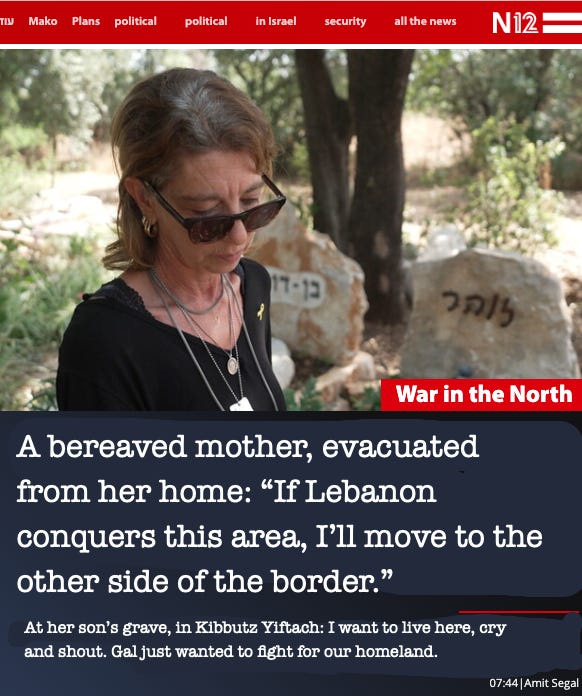

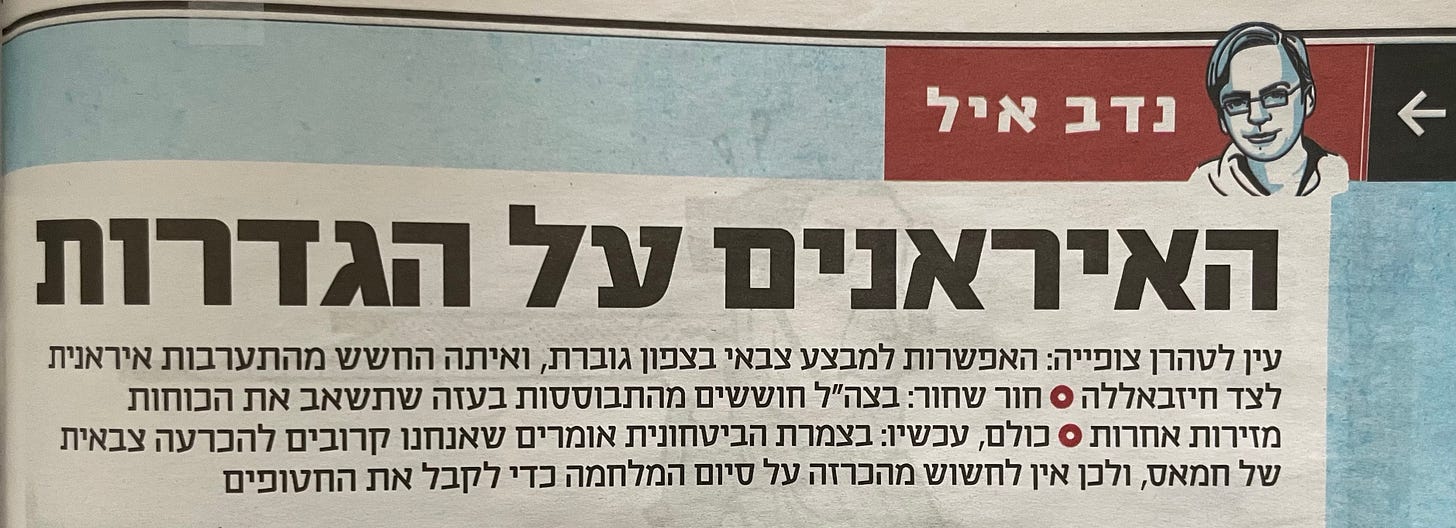
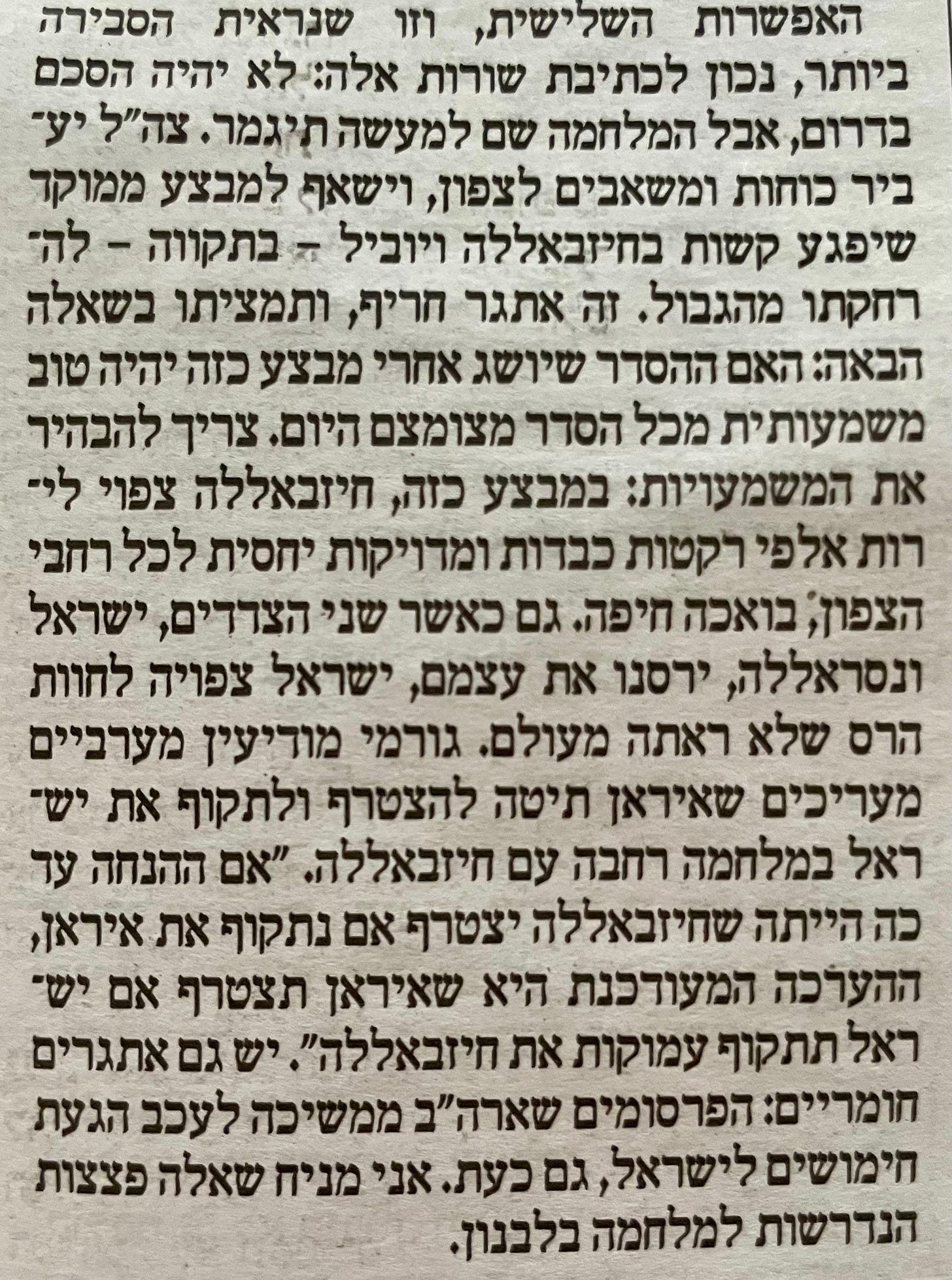

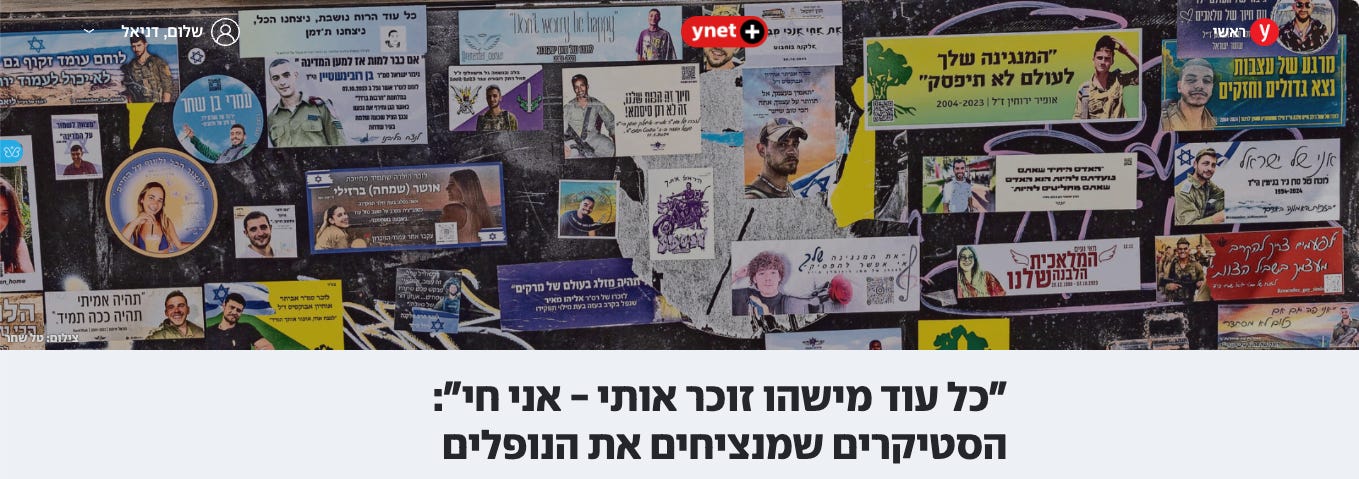
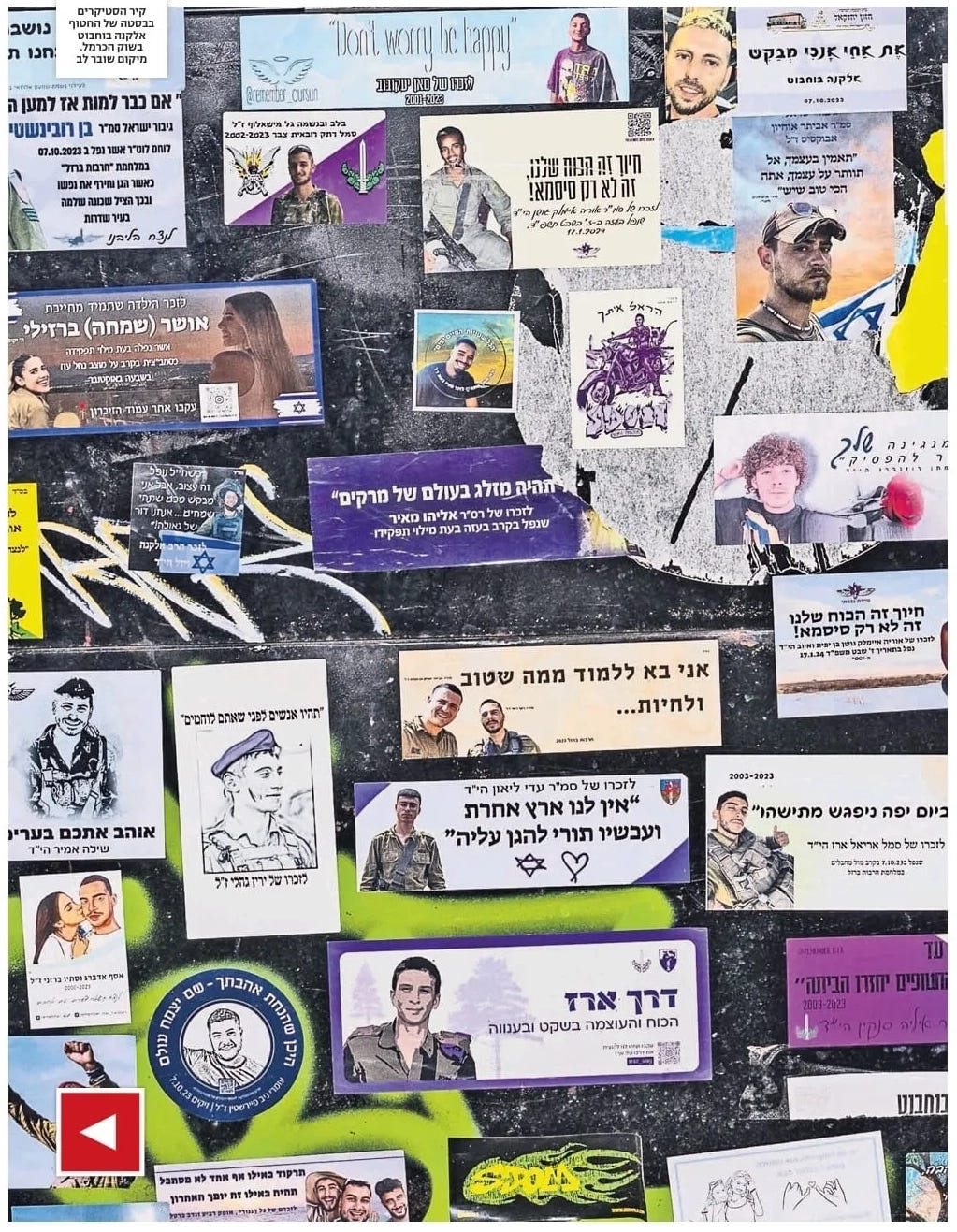

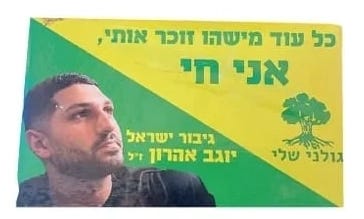

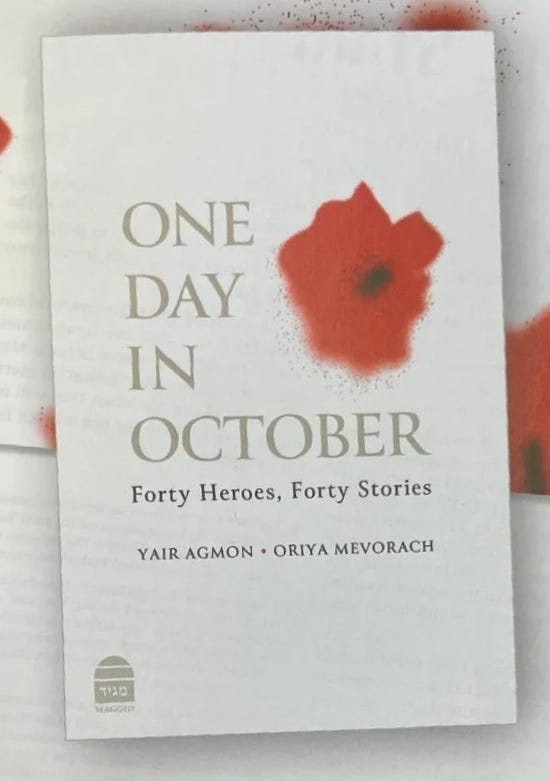
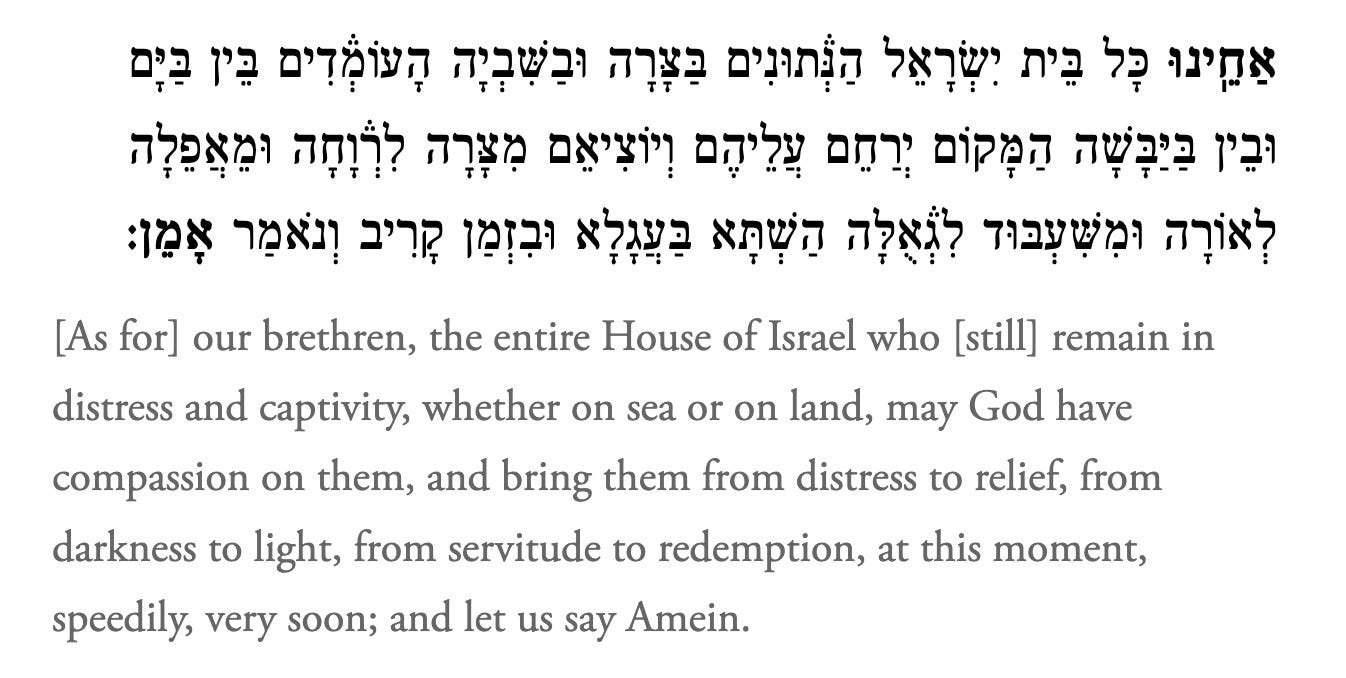










"If Lebanon captures this area, I'll live on the other side of the border"